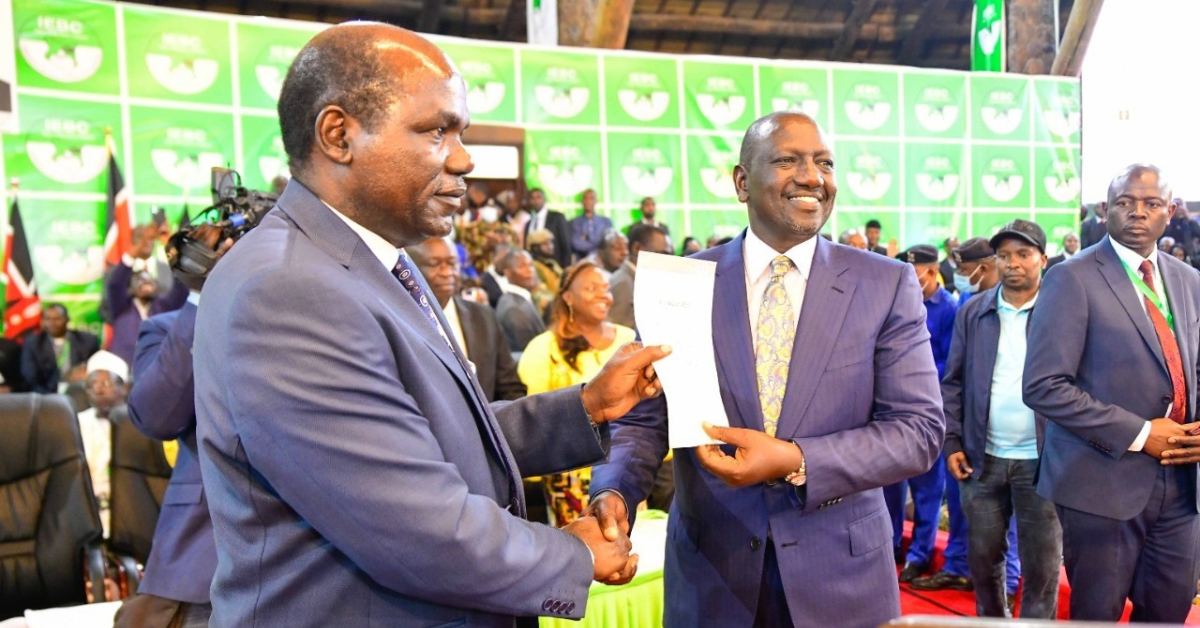In one translation of my favourite Mao Tse Tung’s poem, Ch’ang-sha, the poet observes and asks:
In the waste’s dreariness brooding,
I ask the blue space without bonds:
Who masters fate’s rise and descent?
In the death of Mutula Kilonzo, we may similarly ask:
Is death an arrow, always pointing forward towards infinity?
Is it a cloud, always swirling, forming, and reforming?
Or, is it rain and the ocean, locked in perpetual dance?
The abruptness of Mutula’s death, and the sheer unpredictability of life itself, prompts profound philosophical and poetic reflections in all of us. It is not that physical death is a surprise. It is not. We know it approaches with absolute certainty. It is just that, to quote one Dr. Mardy Grothe, “After a certain age, we all step into the departure lounge of life; with most of us hoping our flight will be delayed.”
But beyond reflections on life and death, Mutula’s death must prompt us to ponder the urgent matter of trust and confidence: what is the real reason Mutula’s family invited a foreign pathologist? There were also reports in sections of the media to the effect that the family might invite other foreign forensic experts. Why invite foreign experts? Johnson Muthama, the Senator for Machakos and a friend of the Kilonzos was reported as having said the decision to involve a foreign expert in the autopsy should not be misconstrued as having any suspicions on the cause of death, but only as desire to get the best explanation on the death of the departed Senator. Few will buy that. It cannot be that Kenya, in this day and age, 50 years after independence, lacks experts capable of performing autopsies and criminal investigations. No. The real reason, I believe, is a deficit of trust and confidence in our own experts and systems.
If you dig deeper to ask why we do not trust our experts, you find the reason is not just the fear that our experts are easily corruptible, it is something more frightening. It is the growing fear that there are dark and shadowy forces out there that have ‘captured’ the state and commandeered its apparatus for sinister motives. The fears are spawning all manner of illuminati-type conspiracy theories. Is there a hyper-secretive group of powerful people playing both devil and God with people’s lives?
It is a tempting but silly thought.
But silly only if you ignore the fact that many high profile deaths remain unexplained or partially explained. From Pio Gama Pinto, Tom Joseph Mboya, Josiah Mwangi Kariuki, John Robert Ouko, George Saitoti and Joshua Orwa Ochode, Oscar Kamau Kingára and John Paul Oulu, Erastus Kirui Chemorei – the list is long – the real hand behind their deaths has somehow remained hidden. It is of course perfectly possible that these countrymen died of ‘normal’ crimes and accidents. But then you would have to ignore reports of the growing threat of organized crime. A report published in 2011 by the International Peace Institute titled Termites at work: Transnational Crime and State Erosion in Kenya is sobering, even though it probably only scratches the surface. It documents how – because of an enabling corrupt environment and a strategic geographic location – Kenya has become a fertile ground for transnational organised crime. Six types of crimes are identified, namely: drug trafficking, illicit trade in counterfeit goods and other illegal goods, trafficking in wildlife products, human trafficking and smuggling, small arms trafficking, and money laundering. There are billions of shillings riding on these crimes in Kenya. Their true magnitude and impact on society is difficult to quantify. But we know this: corruption and money by themselves make a deadly mix. Throw in ethnic politics and greed for power and you have an explosive cocktail.
These are the real reasons for the lack of trust and confidence in our own systems and experts. These are the reasons for the unspoken but widespread fear; the reasons for conspiracy theories and worrying questions: has the Kenyan state been ‘captured’ and to what degree? If you stand firm and bravely speak truth to power – as Mutula did –are you safe? Some ask (ignoring what the Kalpana Rawal Commission concluded as the cause of death): if a Minister in charge of Internal Security (Saitoti) was not safe, is anyone safe?
In the blurred boundary between fact and fiction, fear abounds.
Fortunately, there is an ebb and flow in the rhythm of life. The ebb in good governance has been gone for long, but the countervailing tide is slowly but surely turning. And the evidence is not necessary in a newly elected government. Nor is it even in a vigilant and brave civil society. It is in a global rhythm animated by new demographics and the relentless match of technology.

